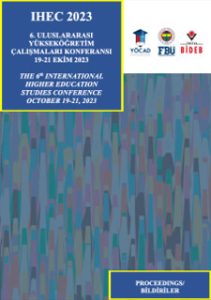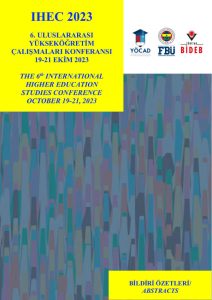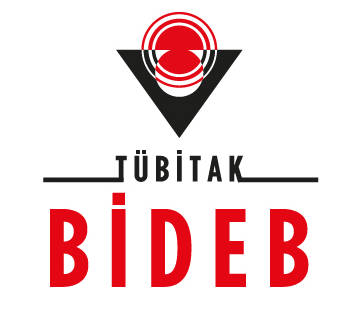Katılım Şekilleri
Sözlü Sunum (15 dakika)
Sözlü sunumlar çoğunlukla bitmiş ya da bitirilmekte olan çalışmaları içerir. Araştırmacılar sunumlarını yaptıktan sonra katılımcılar ve oturum başkanının varsa açıklayıcı geri dönüşlerine ve sorularına yanıt verirler. Çalışmaların sunumunu yapacak araştırmacıların zaman tahsisine özen göstermesi gerekmektedir. Oturum başkanları, oturumun sunum sayısına göre zamanlamayı ayarlayabilir. Her sözlü sunum 15 dakika olarak planlanacaktır.
Sözlü Sunum Özeti: Kaynaklar hariç, 500-750 kelime arası olup aşağıdaki başlıkları içermelidir:
- Problem tanımını
- Çalışmanın amacını veya araştırma sorusunu/sorularını,
- Kavramsal/teorik çerçeveyi,
- Çalışmanın yöntemini (ampirik çalışmalar için),
- Bulguları (devam eden çalışmalarda ilk bulguları)/ Tartışmaları, ve
- Sonuçları içermelidir.
Sempozyum (60-90 dakika)
En az üç, en fazla beş bildiriden oluşan sempozyum önerileri yapılabilir. Sempozyum tartışmacısı, sempozyum ekibini ve teklifini sunmalıdır. Sempozyum önerisi 500 kelimeye kadar sempozyumu tanıtıcı tek bir metin ve her bir sempozyum bildirisi için 300 kelimelik özetlerden oluşmalıdır.
Sempozyum Özeti: Kaynaklar hariç, toplamda 500-700 kelime olup sempozyumun probleminin tanımını, amacını, kavramsal/teorik çerçevesini, sempozyum bildirilerinin sempozyuma katkısını, tartışmaları ve sonuçları içermelidir.
Sempozyum Bildiri Özetleri: Kaynaklar hariç, her bir özet 300-500 kelime arası olup aşağıdaki başlıkları içermelidir:
- Problem tanımını
- Çalışmanın amacını veya Araştırma sorusunu/sorularını,
- Kavramsal/teorik çerçeveyi,
- Çalışmanın Yöntemini (ampirik çalışmalar için),
- Bulguları (devam eden çalışmalarda ilk bulguları)/ Tartışmaları, ve
- Sonuçları içermelidir.
Yuvarlak Masa Toplantısı (sunum süresi: 10 dakika)
Yuvarlak masa oturumları, sunum yapanlar ve katılımcılar arasında yüksek etkileşime izin vermektedir. Bu oturumlar kariyerinin başındaki araştırmacılar ya da devam etmekte olan araştırmalar için uygundur. Tartışmalar, bir yuvarlak masa/toplantı formatında ortak ilgi alanları etrafında kümelenmiş küçük bir sunum grubuyla ilerleyecektir. Araştırma alanı hakkında bilgi sahibi bir moderatör etkileşim ve katılımı kolaylaştırmaya çalışacaktır.
Moderatör, başlangıçta tartışma konusunu ve oturum sunucularını kısaca tanıtacaktır. Ardından, tartışmada belirli sorulara ve zorluklara odaklanılacaktır. Temel kazanımlar, sonraki adımlara ilişkin fikirler ve somut eylemler gibi sonuçlar edinilmesi amaçlanmaktadır.
Yuvarlak Masa Oturumu için Özet: Oturum sunumcularının, ele alınan konuyla ilgili temel soruları ele alan bir özet veya yorum yazısı sunmaları gerekmektedir. Kaynakça hariç özet 350-400 kelime arasında olmalıdır. İlgili özet şu başlıkları ele almalıdır:
- Amaçlar ve/veya araştırma sorusu
- Perspektifler veya teorik çerçeve
- Yöntemler, teknikler veya araştırma yöntemleri
- Veri Kaynakları,
- Argümanlar için sonuçlar ve/veya doğrulanmış sonuçlar ve
- Oturumdan araştırmayla ilgili beklentiler ve/veya sorular
Poster Sunumu (10 dakika)
Poster oturumları, yapılan çalışmanın görsel unsurlar ve anlamlı özetler aracılığıyla kişiselleştirilmiş ve enformel tartışılmasına olanak sağlamaktadır. Poster sunumu yüksek lisans ve doktora öğrencileri için uygun olabilir. Tüm poster sunucuları oturumu kolaylaştıran bir e-Poster (pdf formatinda) sunmalıdır. Poster sunumcuları, yaptıkları çalışmayı temsil eden sanal ekranlar kurarlar. Poster oturumu, katılımcılara posterleri çevrimiçi görüntüleme, yazarın sunumlarını dinleme ve bildirilere erişme şansı vermektedir. Genel bir oturumun aksine, bir poster oturumu katılımcıların bilgileri inceleme ve gözden geçirmelerine ve uygulayıcılarla bire bir tartışmalarına olanak tanımaktadır.
Poster Tanıtımı: Kaynaklar hariç, 350-500 kelime arası olup aşağıdaki başlıkları içermelidir:
- Problem tanımını
- Çalışmanın amacını veya Araştırma sorusunu/sorularını,
- Kavramsal/teorik çerçeveyi,
- Çalışmanın Yöntemini (ampirik çalışmalar için),
- Bulguları (devam eden çalışmalarda ilk bulguları)/ Tartışmaları, ve
- Sonuçları içermelidir.
Yazara bilgi
Konferans dili Türkçe ve İngilizcedir. Özetini İngilizce gönderenlerin sunumlarını İngilizce yapmaları gerekmektedir.
IHEC 2023 hakemli bilimsel bir konferanstır. Konferansa gönderilen tüm bildiriler/sempozyumlar alanında uzman en az 2 hakem tarafından ”kör hakemlik’’ uygulaması çerçevesinde değerlendirilecektir. Kabul veya red kararı hakem değerlendirmesi sonucuna göre verilmektedir.
Önemli Hatırlatmalar
Ortak yazarlı çalışmalar için konferansa bizzat katılacak her bir katılımcının katılım ücreti yatırması gerekmektedir. Bir katılımcı en fazla 2 bildiri sunabilir.
Bir yazarın ismi en fazla 3 bildiride yer alabilir.
Konferans programına dahil olmak isteyenlerin 18 Eylül 2023 tarihine kadar konferansa kayıt olması gerekmektedir.




